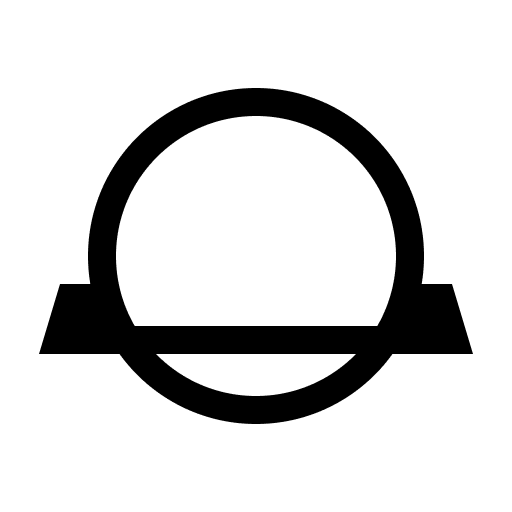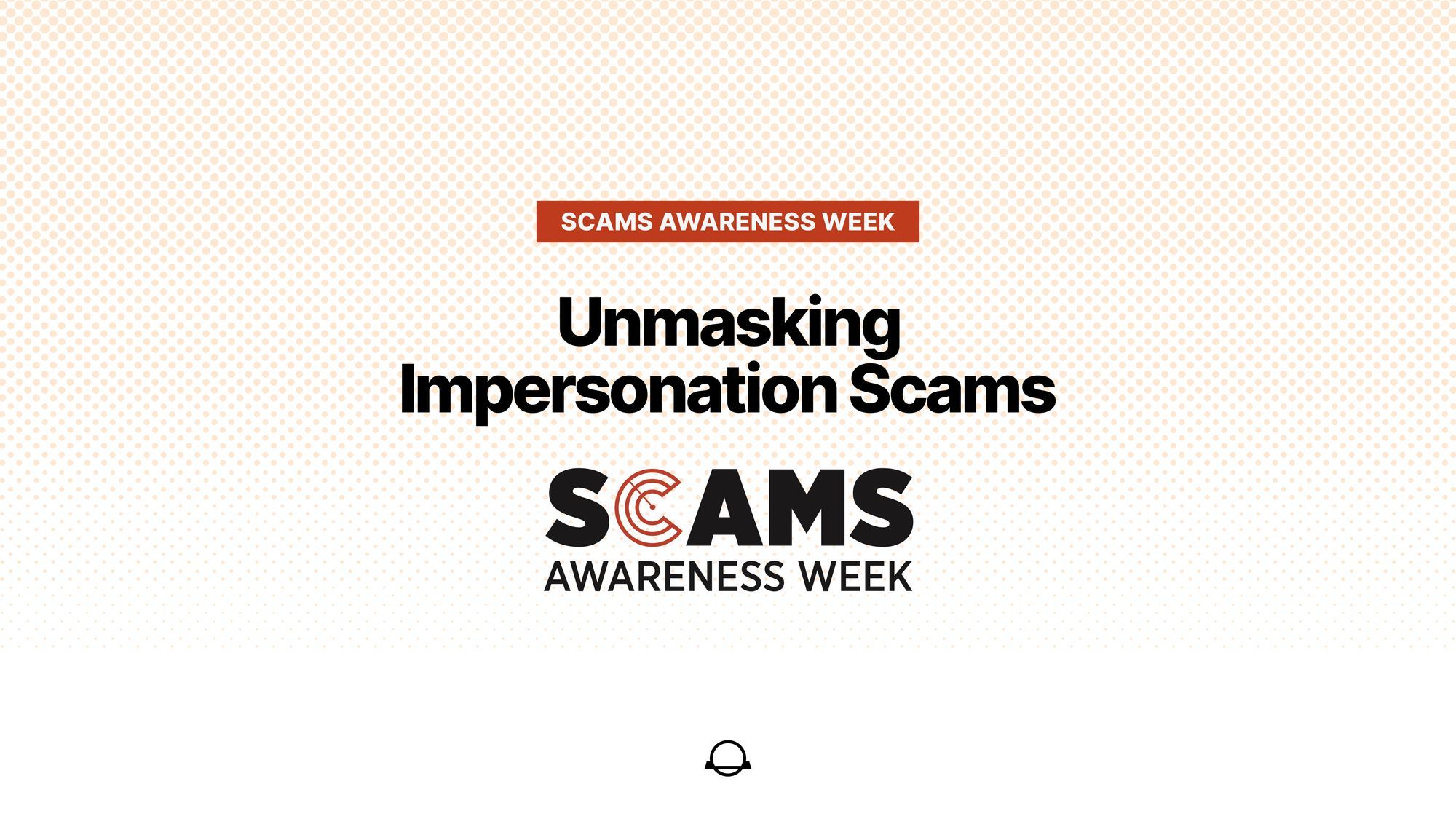Unmasking Impersonation Scams
November 27, 2023

As part of , we're joining and the as to delve into the shadowy realm of impersonation scams. We focus on uncovering the essential tactics for identifying scams in your daily digital life, verifying authenticity and real-life examples.
Impersonation scams are the wolves in sheep's clothing of the cyber world. They don't just knock on your digital door – they come dressed as the postman. In 2023 so far, impersonation scams accounted for more than 70% of the 234,672 reports to .
Impersonation scams can be extremely sophisticated, be it impersonation of government officials, well-known companies, or even those closest to you. Remember those “Hey mum” text messages? We do!
The Anatomy of Impersonation Scams
Impersonation scams are a masterclass in digital deceit. These scammers utilise advanced technology to create communications that appear frighteningly legitimate. They can clone websites, mimic phone numbers, or even hijack social media profiles. Their aim? To blur the line between genuine and fraudulent, tricking you into volunteering your personal information or hard-earned money.
Understanding and identifying these scams is crucial in safeguarding your digital presence.
Recognizing the Red Flags
Awareness of the common signs is your first line of defence. Consider these scenarios:
- A text message arrives from a 'family member' in an emergency, urging you to transfer funds immediately.
- An email from a 'bank' with the wrong domain name or email address, requesting your account details or letting you know your account has been frozen.
- A text message from the local post service letting you know a delivery failed and your action is needed.
- A call from a 'government official' threatening legal action unless immediate payment is made.
In each case, the demand for urgent action, coupled with a request for personal or financial information, should trigger suspicion.
Navigating the Minefield
The golden rule here is simple:
Stop, think, protect. Do not rush into action.
Be sceptical of every request, especially those instilling a sense of urgency or fear, or pushing for payment or information. Legitimate, genuine organisations and individuals will understand and respect your need for verification.
Verifying Authenticity
In the realm of impersonation, verification is key. Here’s how you can do it:
- If you receive a message from a 'new' number of a known contact, try calling their old number or ask a question only they would know.
- When contacted by an organisation, look them up online – find their official contact information and reach out to confirm if the communication is genuine.
- Be vigilant about slight variations in URLs, email addresses, or caller IDs.
Real-Life Examples for Context
Consider Jane, who received an email from her 'bank' about a suspicious transaction. The email looked legitimate but asked her to immediately confirm her login details. Jane, remembering the rule of verification, contacted her bank through their official website and discovered it was a scam attempt.
Or take the case of Alex, who got a call from someone claiming to be from the tax office, demanding immediate payment for tax dues. The caller ID seemed official, but Alex asked for a reference number and called back on the official tax office number, only to find no such dues existed.
Making a Report
Scams can be stopped, but we need your help to do it. You can help stop the scam, and help warn others, by .
By reporting scams to Scamwatch you help protect others and disrupt and stop scammers. The reality is, 30% of scams currently go unreported.
The information you share to Scamwatch helps the National Anti-Scam Centre to identify the scams that are causing the most harm to Australians.
In this digital masquerade ball, where scammers are constantly evolving their tactics, your scepticism and diligence are paramount. Always remember, in the face of impersonation, it’s not just about spotting the scam; it’s about outsmarting it. Stay alert, stay informed, and stay safe.
If in doubt...
If you’re unsure about something, contact . We’re constantly monitoring suspicious wallets and websites and can help you work out whether something is a scam or not.
Stay safe,
CoinJar Team
UK residents: Don’t invest unless you’re prepared to lose all the money you invest. This is a high‑risk investment and you should not expect to be protected if something goes wrong. Take 2 minutes to learn more: .
Cryptoassets traded on CoinJar UK Limited are largely unregulated in the UK, and you are unable to access the Financial Service Compensation Scheme or the Financial Ombudsman Service. We use third party banking, safekeeping and payment providers, and the failure of any of these providers could also lead to a loss of your assets. We recommend you obtain financial advice before making a decision to use your credit card to purchase cryptoassets or to invest in cryptoassets. Capital Gains Tax may be payable on profits.
CoinJar’s digital currency exchange services are operated in Australia by CoinJar Australia Pty Ltd ACN 648 570 807, a registered digital currency exchange provider with AUSTRAC; and in the United Kingdom by CoinJar UK Limited (company number 8905988), registered by the Financial Conduct Authority as a Cryptoasset Exchange Provider and Custodian Wallet Provider in the United Kingdom under the Money Laundering, Terrorist Financing and Transfer of Funds (Information on the Payer) Regulations 2017, as amended (Firm Reference No. 928767).
EU residents: CoinJar Europe Limited (CRO 720832) is registered as a VASP and supervised by the Central Bank of Ireland (Registration number C496731) for Anti-Money Laundering and Countering the Financing of Terrorism purposes only.
On/Offchain
Your weekly dose of crypto news & opinion.
Join more than 150,000 subscribers to CoinJar's crypto newsletter.
Your information is handled in accordance with CoinJar’s .
More from CoinJar Blog
CoinJar’s digital currency exchange services are operated by CoinJar Australia Pty Ltd ACN 648 570 807, a registered digital currency exchange provider with AUSTRAC.
CoinJar Card is a prepaid Mastercard issued by EML Payment Solutions Limited ABN 30 131 436 532 AFSL 404131 pursuant to license by Mastercard. CoinJar Australia Pty Ltd is an authorised representative of EML Payment Solutions Limited (AR No 1290193). We recommend you consider the and before making any decision to acquire the product. Mastercard and the circles design are registered trademarks of Mastercard International Incorporated.
Google Pay is a trademark of Google LLC. Apple Pay is a trademark of Apple Inc.
This site is protected by reCAPTCHA and the and apply.